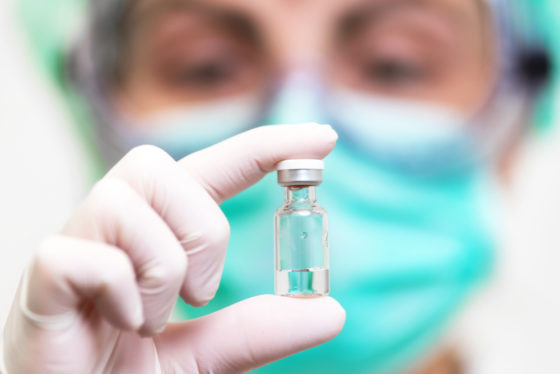Dutch coronavirus infection risk set to go down, as vaccinations mount up


With the number of new coronavirus infections in the Netherlands dropping to under 2,000 on Sunday, and hospital admissions declining steadily, the official risk level for all of the Netherlands is set to go down in Tuesday’s review, the government’s coronavirus dashboard figures indicate.
If the number of new infections falls below 100 per 100,000 people, the infection risk will drop from ‘serious’ to ‘worrying’ while the hospital admission risk will go down from ‘very serious’ to ‘serious’, the Volkskrant reported on Monday. Over the past seven days, an average of 75 people a day have been admitted to hospital, compared with 300 a day in April.
The drop in new cases has been driven by the rise in vaccinations – some 10.4 million doses have now been administered in the Netherlands and people in their late 30s are now being called up for a jab.
‘It is unbelievable,’ Diederik Gommers, head of the Dutch acute care association told a television talk show on Sunday evening. ‘A month ago we had a peak and now IC admissions have gone down by 60%.’
‘Of course we knew this would happen, but when you see it taking place in front of your own eyes, it makes you really enthusiastic,’ Gommers said. And once everyone has been fully vaccinated at the end of the summer ‘we will get our “new lives” back.’
‘If we manage to get a vaccination rate of 75%, then the reproduction rate will stay under 1,’ he said. This means, the IC chief said, that we will be protected in the autumn and winter against a new outbreak.
Caution
However, Andre Rouvoet, head of the regional health board umbrella organisation, has warned that the government must put more money into promoting good health – especially in reducing obesity, if the health boards are to be effective in dealing with pandemics.
‘If we put more money into prevention, than we would not have IC wards full of people who are too heavy,’ he told the AD in an interview. ‘That is the bottom line. During the coronavirus crisis we have come to realise that these people are really vulnerable.’
The government, he said, should not put illness and healthcare at the centre of its health strategy. ‘It is time to invest in good health rather than in solving problems later,’ he said.
The health boards published their recommendations for the next government at the end of last month.
Thank you for donating to DutchNews.nl.
We could not provide the Dutch News service, and keep it free of charge, without the generous support of our readers. Your donations allow us to report on issues you tell us matter, and provide you with a summary of the most important Dutch news each day.
Make a donation